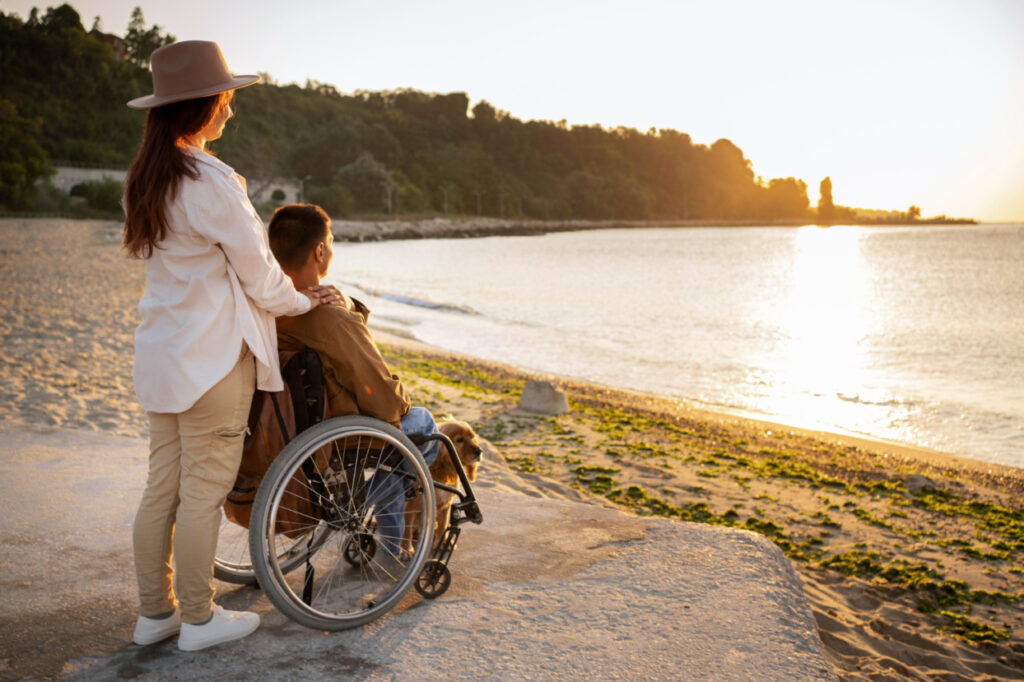When it comes to maintaining your independence, at the top of the list for many NDIS participants is the option to live in a comfortable, safe and private space. Becoming a popular option is supported independent living (SIL) which is care that can be provided within the comfort of your home but more often within a shared living space. It provides great flexibility in regards to the types of support you can receive, who provides that support and at what times. But what is SIL? How is it different to other disability housing options? And how do you know if it’s right for you?
What’s Supported Independent Living (SIL)
SIL is a form of supported accommodation that is aimed to provide participants with as much independence as possible. Most often, SIL is provided within a shared living space as it is typically accessed by people who require 24/7 support. Your funding will go towards having round the clock assistance from Support Workers to provide the care and assistance needed. The type and level of support are typically tailored and specified within each person’s NDIS plan.
The main aim of SIL is to provide the support needed for an individual to maintain their independence and live as normal a life as possible. This includes things like cooking, cleaning, personal care and budgeting. The level of support required will differ from person to person, but the overall goal is the same – to help the individual live as independently as possible.
Who Is SIL For?
SIL is available to any NDIS participant who meets the eligibility criteria and has it included in their NDIS plan. To be eligible, you’ll need to demonstrate that you require 24/hour support and are unable to live independently without this level of care.
If you’re unsure whether you meet the criteria, your NDIS Plan Manager or Support Coordinator can help you understand if SIL is an option for you.
What Are the Benefits of SIL?
There are many benefits of supported independent living, including:
- Providing more control over your daily routine and who provides your support.
- Having the option to live in a safe and comfortable environment that best suits your needs.
- Flexibility when it comes to the type and level of support you receive.
- Whether it’s just receiving routine care or you need help in the case of an emergency, you’ll be able to access support at any time, day or night.
- While in a shared living space, you’ll have the opportunity to spend time with like-minded individuals and develop your social skills.
- Receiving the support you need from qualified Carers means you’ll have more time to focus on achieving independence goals, as well as spend time with family and friends
- SIL can also be great to engage in community participation activities. Often your SIL provider will be able to organise group events and outings where you’ll be able to go to the movies, park, engage in sports or volunteer within your community.
How Is SIL Different to SDA?
One of the most commonly asked questions and often confusing is what’s the difference between SDA and SIL? If you require both, a SIL Provider can also be an SDA provider, but it’s not uncommon for participants to receive both levels of support from two different providers.
SIL is different to SDA in a few key ways:
- SDA is concerned with the way your accommodation has been designed to best suit your needs. This includes accessibility features like wheelchair ramps, handrails, stair elevators, easy to reach storage etc. A SIL provider is responsible for the care from Support Workers you may need within that space.
- SIL is typically provided within a shared living space, whereas SDA is usually provided as private accommodation; however there are often exceptions to this rule.
- An SDA provider will typically own the accommodation and will be responsible for ongoing maintenance and repairs. A SIL provider will be responsible for personal care and domestic assistance.
- SIL is an option for NDIS participants who require 24/hour support to live independently. SDA is for those with high needs who require specific features in their accommodation to meet their disability needs.
Do You Need a SIL or SDA Provider?
If you’re looking for SDA providers or Supported Independent Living services, the team at OSAN can provide you with both! We have a range of talented Carers & Support Workers and proudly have some of the best Disability Housing options Australia has to offer. Get in touch with us today!










